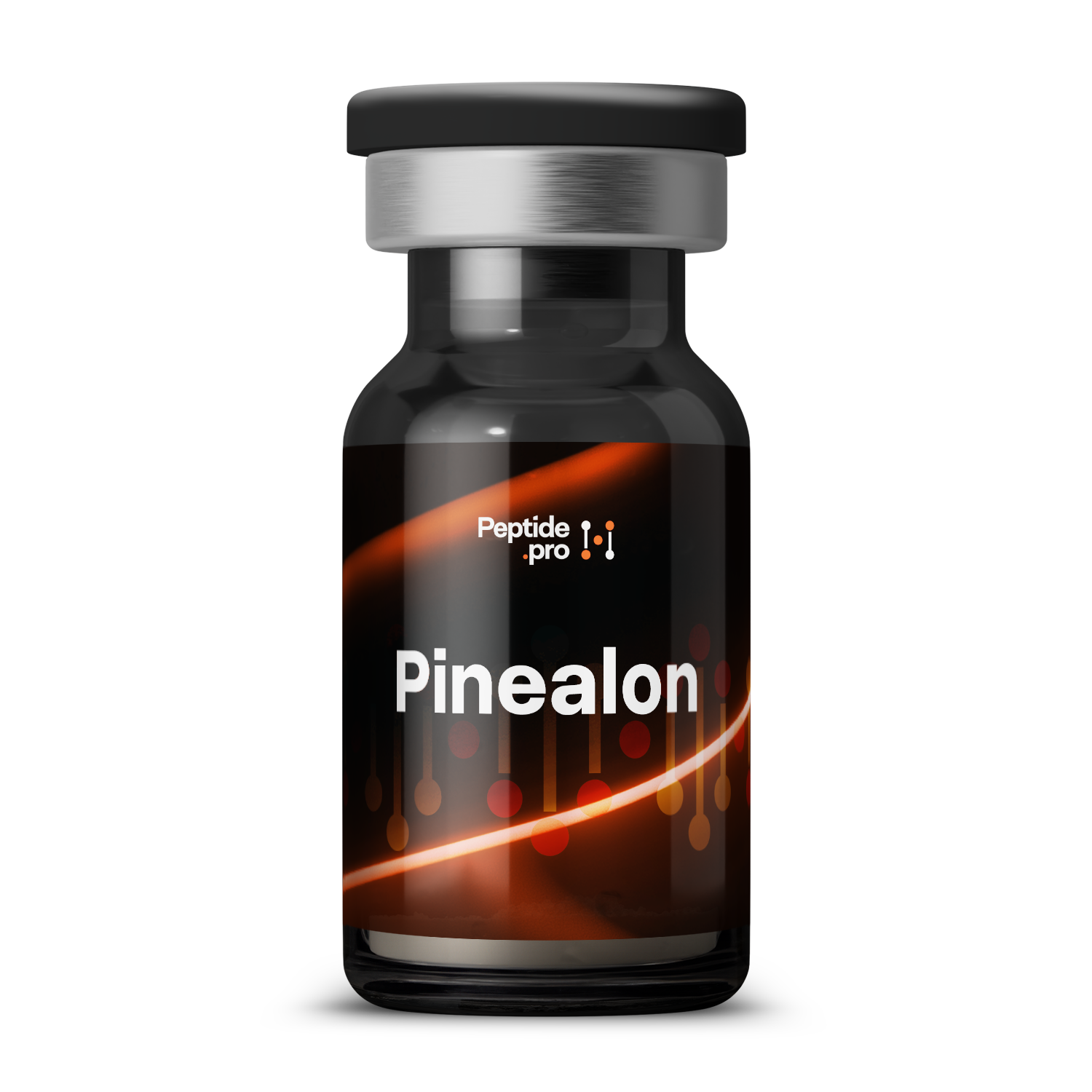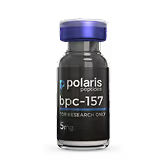Pinealon
Pinealon is a simple three–amino-acid peptide modeled after a natural pineal-gland hormone fragment. In research studies, it helps protect brain cells from stress and may improve short-term memory and mental clarity. It works by supporting antioxidant defenses and promoting healthy nerve-cell communication under challenging conditions.
Compound Overview
About the product
The sequence comprises three natural L-amino acids—glutamic acid, alanine, and proline—with free N- and C-termini. No non-natural modifications are present. It is synthesized by Fmoc solid-phase peptide methods and purified by HPLC to ≥95 % purity. Mass spectrometry confirms its correct sequence and molecular weight.
Pinealon modulates cellular stress-response pathways, including antioxidant defenses and mitochondrial function, in neuronal cells. It appears to enhance expression of genes involved in synaptic plasticity and protects against glutamate-induced excitotoxicity. In human neuronal culture models, Pinealon reduces markers of oxidative damage and supports cell viability under stress.
Pinealon peptide benefits are being studied for their potential to support memory and cognitive performance in age-related decline. In small human pilot studies, daily Pinealon administration was associated with modest improvements in short-term memory tests and reduced subjective fatigue. It is also being explored for its potential to mitigate stress-induced cognitive impairment. Larger, controlled trials are needed to confirm these findings.
Reported adverse events in limited human use are minimal, with occasional mild headache or gastrointestinal discomfort. No serious safety signals have emerged in short-term studies. Data on long-term administration, pregnancy, and lactation are not available. Monitoring of basic metabolic and liver-function markers is recommended in research protocols.
Pinealon is produced via Fmoc solid-phase peptide synthesis, coupling three amino acids sequentially on a resin. After cleavage, it is purified by preparative HPLC to research-grade purity. Quality control employs mass spectrometry and analytical HPLC to confirm sequence integrity and purity. Manufacturing follows peptide-compounding best practices.
Pinealon is classified for investigational research use only and is not approved by the FDA, EMA, or other major regulators. It cannot be prescribed or marketed as a therapeutic. Research institutions obtain it under investigational-new-drug or equivalent frameworks. No commercial formulations are available.
Pinealon dosing has no standardized human guidelines. Pilot studies have used 50–200 µg subcutaneous or intranasal daily for up to four weeks. All administration should follow approved investigational-study protocols.
- Do restrict use to IRB-approved research settings with medical oversight.
- Do monitor cognitive function and basic safety labs during treatment.
- Don’t assume efficacy beyond investigational settings.
- Don’t combine with other neuroactive peptides off-protocol.
- Q: Does Pinealon improve long-term memory?
- A: Early studies suggest modest short-term recall benefits; long-term effects remain untested.
- Q: Is Pinealon orally active?
- A: Most research uses subcutaneous or intranasal routes; oral bioavailability is unverified.
- Q: Can it prevent age-related cognitive decline?
- A: Its potential is under investigation; no conclusive evidence exists yet.
For research use only. Not approved for medical use.


